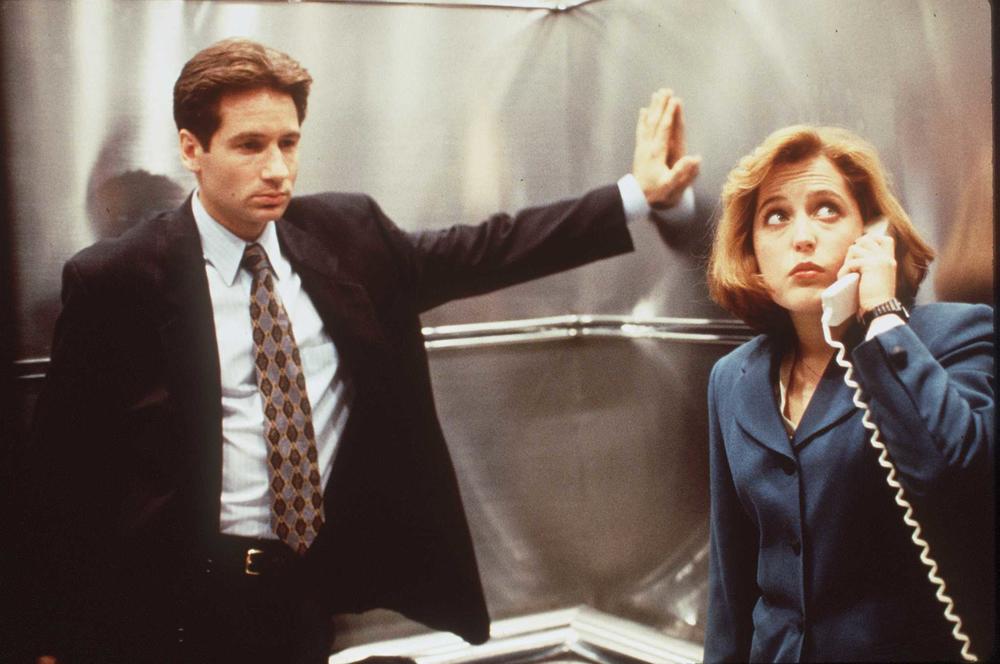Section Branding
Header Content
You're overthinking it — how speculating can spoil a TV show
Primary Content
Kids, gather 'round ol' Pappy Glen's knee, and he'll tell you a tale of television in the olden days of his far-off youth. It was a time when your basic TV show was just that: basic. It didn't demand much from you, it just unspooled itself before your eyes. Sitcoms could be counted upon to supply canned laughter (the com) but their setting, characters and premise (the sit) would reset back to starting positions every week. Characters on cop shows, doctor shows, lawyer shows and nighttime soaps might get run through serialized plots over the course of a given season ("Who shot J.R.?"), but they certainly didn't permanently grow or deepen or complicate; that wasn't why people watched.
Mostly, what TV provided was familiarity, comfort, pattern recognition. You might ask a friend or co-worker if they'd seen last night's Hill Street Blues, and you might idly speculate about that shocking death on ER, but the remarkable thing about such speculation was just how idle it inevitably was.
When the internet came along, that passive involvement grew active. Fandoms swelled to fill message boards and chatrooms with a more fervent species of discussion and speculation. TV changed to account for this. The X-Files' overarching serialized plotting grew hilariously dense and complicated (whose side were those alien bounty hunters on, again?), because suddenly it had leave to do so. Hardcore fans were only too happy to publish their own painstakingly researched roadmaps unpacking a show's dense lore on their webpages. Series like Lost and, most recently, Westworld were made to withstand, and benefit from, that kind of close attention.
But this kind of analysis was only ever meant for a very specific type of high-concept, puzzle-box series like The X-Files, Lost, Westworld, Fringe and Dark – shows intentionally packed with secrets and hidden connections for viewers to untangle. But to hop onto social media is to see this same tool of inquiry applied unilaterally, every damn where, to shows that hide no secrets, that withhold no information for only the most eagle-eyed viewers to discover.
I'm not talking about plumbing subtext, here, which is always fair game. I'm talking about looking for hidden, intentionally inserted meanings where none exist. Shows like Succession, House of the Dragon, Better Call Saul and The Mandalorian now come in for the kind of speculation that can't help but outpace their writers rooms. A character's absence from a given episode is taken as proof of their death, when it turns out the actor just booked another gig, and they had to write around it. Tony Soprano spends an episode in a coma, and viewers convince themselves that the rest of the series' run is actually his coma dream. A plot hole in The Mandalorian has viewers running to the internet to avow that a secondary character is actually a spy.
To be clear, none of this is harmful. And after all, I'm the one who seeks this stuff out, because I don't just watch Succession, to pick the most recent example; I read great recaps and much-less-great Reddit threads and tweets and listen to multiple podcasts about it. It's my own fault.
But it is something I'm going to stop doing, because Succession is coming to a close, and I want to experience its end in real time, without a brain a-sizzle with competing, well-argued theories. Avid fan speculation isn't a spoiler, but it does have a spoiling effect. It conjures the merely possible in a way that makes it notionally real. It creates many such possible outcomes – in so great a number and with such conviction that at least a few of them are probably gonna come close to hitting the mark. I had the endings of Better Call Saul and Watchmen and The Leftovers and many other shows "spoiled" for me in this way.
I'm curious to see how this experiment – let's call it a tactical disengagement – turns out. If it works, and I'm legitimately surprised and satisfied by the Succession finale, I might join the millions of Americans who still watch TV the way I used to as a kid – lacking content, but perfectly content.
This piece also appeared in NPR's Pop Culture Happy Hour newsletter. Sign up for the newsletter so you don't miss the next one, plus get weekly recommendations about what's making us happy.
Listen to Pop Culture Happy Hour on Apple Podcasts and Spotify.
Copyright 2023 NPR. To see more, visit https://www.npr.org.


